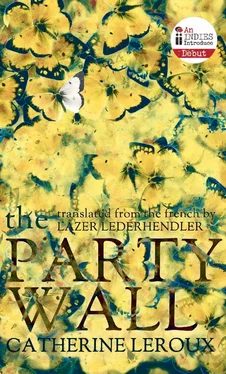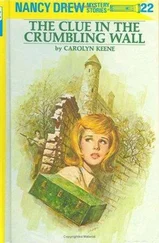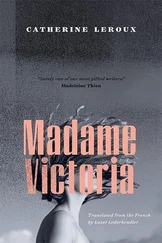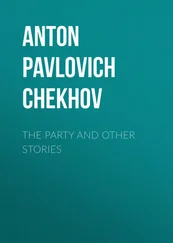Alone again, she completes the questionnaire and inserts everything in an envelope addressed to a private laboratory that usually receives the hairs of unlucky, cuckolded, or exceedingly suspicious men. “It’s probably the first time they’ll have tested a mother’s hair,” Madeleine mutters as she licks the flap. She has not spoken to anyone about her new course of action, fearing this would complicate things even further.
To eliminate the possibility of an error, the blood tests were repeated at the hospital, but the results came back with the same absurd degree of accuracy. The social worker assigned to the case already seems to regard Madeleine as a guilty party, a monster who may have stolen someone else’s baby. The fact she is a widow with no other children doesn’t help. A husband may have testified on her behalf; a second child would have put the incomprehensible revelations of her DNA into perspective. A living, rational blood relation might have bolstered the defence that she is timidly trying to marshal. But she is alone.
Having sealed the envelope, Madeleine collects her photographic equipment and goes out. The light outside has grown majestic after hours of false modesty. Spring has begun to crackle and sends up fragrances that astonish Madeleine every year as if she had never encountered them before. The mud warming in the artificial pond. The verdigris on the bronze sculpture near the day lilies. Her own sweat, which sends out a new note when the mercury ventures beyond a certain threshold.
She cautiously attaches a macro lens to the camera, which she mounts on a small tripod. Then she positions her arm in front of the lens. For days the only subject that has really interested her is her skin; her shots run the gamut from goose bumps to the crinkles on her water-soaked fingers, as she avidly seeks to penetrate the pores, to pierce the layers of skin as though they are walls keeping her from the truth. She has come to understand what her deceased husband was looking for with his close-ups of insect legs and antennae. The truth in the tiny. The devil in the details.
By the time Édouard wakes up, Madeleine is already on the road. She would rather not bump into her son, and apparently the feeling is mutual. When she arrives at Paul’s place the house is silent and gaping on all sides, with the windows and shutters wide open. Paul is absent. Madeleine calls out a few times but there is no answer. Taken aback, she heads for the beehives. She has always kept her distance from the bee colony, not so much out of fear as incomprehension. Today, however, something impels her there. She wants to feel the swarm swirling around her, allow the more curious worker bees to land on her hair, to forage on her clothes, on the sparkle of her rings; she wants to let the buzzing whisper a message that she alone can grasp.
But instead of the perpetual vibration that ought to prevail there, she finds nothing but silence. Intrigued, she steps closer to examine the wooden frames that the owner so carefully maintains. They are deserted. Not a bee in sight.
“Paul?” Madeleine shouts again.
All at once, she slumps down amid the hives and bursts into tears. For the first time since Édouard told her about his disease, she lets herself sink into the heart of pain, to plunge where nothing holds up anymore, where the ground gives way with every step. She digs her fingers into the loose earth and watches her limbs writhe with distress. She wants to tear herself in two.
After a long while, a heavy pair of hands alights on her shoulders. Paul sits down behind her and hugs her with the strength of a sea monster. The kind of embrace that puts an end to sobbing and lifts the head. Here and there, puddles of honey ooze from the ground.
“It’s hard when someone close falls ill. It’s natural to be upset.”
Madeleine doesn’t answer. How can she explain to a man accustomed to the smallness of the peninsula and the Cartesian world of bees that she must fight to prove the obvious? How can she tell him she has just dropped two strands of hair into an envelope in the hope of demonstrating that she is indeed the mother of the boy she gave birth to? Most of all, how can she tell him there is nothing, absolutely nothing natural about this? She wipes away her tears and looks around her. The beehives are as quiet as they were before.
“The bees — where have they gone?”
Paul shrugs: “Vanished.”
“How so?”
“I don’t know. I’d heard about such occurrences, but to be honest, I didn’t believe it. I didn’t think it could happen here.”
He steps up to his hives, brushes his hand over them. Without the colony, they seem smaller, a dolls’ village that Paul moves through like a sad giant. Overhead, large birds sweep across the sky on the lookout, spot the lagoons, and fly back toward the shore like arrows. Madeleine stands up, shakes the dirt out of her clothes, and walks toward the car. She never says goodbye when she leaves. Paul watches her drive away, then turns around and enters the untamed fields where insects shrewdly assemble and where his bees may have gone to hide out.
When Joanna isn’t riding her bike she’s in the kitchen. Basil-stuffed eggplant lasagna, tagines so spicy they make your head spin, breads that sigh coming out of the oven, vegetable feuilletés that rustle like dried leaves lifted from between the pages of an old dictionary. All this, too, she does without making noise or small talk, thus surrounding herself with an impenetrable wall that no one dares go through to offer a hand or steal a piece of carrot. But Madeleine can’t help watching from the next room. When their gazes meet, Joanna, sounding like a sorceress, says:
“I’m making tea. Want some?”
Madeleine does and sits down opposite her guest as though she, Madeleine, were the visitor. Smiling, Joanna speaks to her as if the conversation has been going on since daybreak:
“So you’re all right?”
It’s hard to complain in the presence of someone whose every wrinkle suggests the pain she has had to confront, undergo, and overcome to lead a life like hers. Madeleine wags her head hesitantly; she’s unable to fish out a clear answer from the troubled waters of her situation.
“Your son is sick. But his chances of recovering are excellent. Why is the atmosphere so heavy in your house?” Joanna asks.
To lie to a woman like her is impossible. Madeleine sighs and lets the truth rise to her lips.
“It’s me. When the test results came back, my blood didn’t say what it was supposed to. It wasn’t just a matter of being incompatible for an organ donation; the doctors don’t believe that Édouard is my son.”
“And you, are you certain that he is? It’s a rarity, but sadly, you know, mistakes have been known to happen in nurseries. Could you inquire at the hospital where you gave birth?”
“I was with a midwife. I was her only patient that day.”
“Hmmm. In that case, it is very strange.”
She gets up and leans over a cooking pot to check on her stew.
“Well, I’m sure it will be cleared up very soon and the explanation will be far less terrifying that what you imagine. I can assure you,” she insists, given Madeleine’s sombre mood.
On the other side of the open window, Shabby pops up as though summoned by the Dutch woman’s prediction. Its fur is haunted by nettles, thorns, and other small, almost living things. It gazes at the two women with pleading eyes, and Joanna compassionately slips it a piece of Gruyère, which it bolts down immediately.
As a little girl Madeleine would have given anything for someone to inform her she was not her parents’ daughter. She dreamed that one day a man in a suit would show up at their house and announce an unfortunate error had been made years ago and she had been interchanged with a neighbour’s child or, better yet, that she was the daughter of foreign travellers, who would come to retrieve her with tears of joy and take her back to Bavaria or Castile or another place full of castles and ghosts of headless horsemen.
Читать дальше











